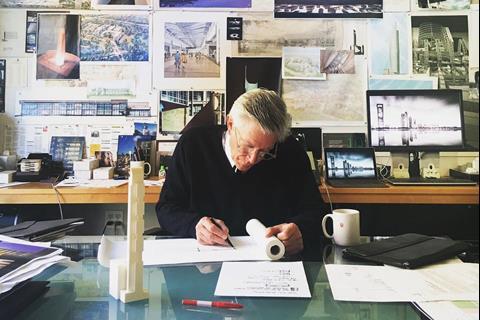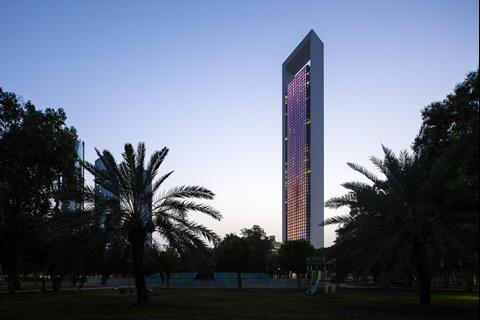US architect’s best known projects included an extension of the US embassy in Moscow
Bill Hellmuth, chairman and chief executive of HOK, has died at the age of 69.
The US architect died on 6 April after a long illness, the practice said on its website.
Hellmuth was elected president in 2005 and appointed chief executive in 2016, before being named chairman of the US firm a year later.
He was the grandson of George Hellmuth, who co-founded HOK’s predecessor HYL in 1949.
HOK said in a statement that Bill Hellmuth would be remembered as an “extraordinary architect and leader” who had raised the profile of the practice, helping to establish the firm as a global frontrunner in sustainable design.
“He will be remembered as a hands-on collaborator and mentor whose passion for the design process was palpable,” the practice said.
Hellmuth had continued to serve as the firm’s global design lead and principal of its Washington DC studio following his appointment as chief executive, a condition he requested for accepting the role.
His work has received some 29 awards from the American Institute of Architects, spanning a large range of building types and locations.
Hellmuth’s best known projects at HOK include the National Air and Space Museum in Washington DC for the Smithsonian, the Abu Dhabi National Oil Company Headquarters, and the US Embassy Chancery and Office Annex in Moscow.
Other notable schemes include the US embassy in Nairobi, the US Environmental Protection Agency headquarters, the University of Maryland Baltimore Health Science Facility III, and King Abdullah Petroleum Studies and Research Center and Residential Community.
He also worked on HOK’s 88-storey, 518m-tall Dalian Greenland Center in northern China, which is currently under construction.
Hellmuth is survived by his wife and two children. His death follows that of HOK co-founder Gyo Obata, who died in March last year at the age of 99.





















No comments yet